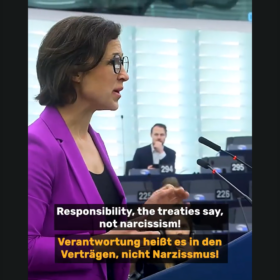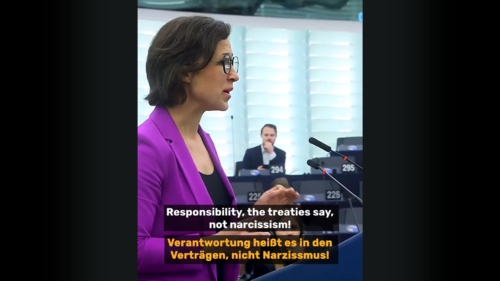The planned deep-water container terminal on the Usedom/Wollin peninsula would have a significant impact on flora and fauna on both sides of the German-Polish border. This proves a study (Document in German) that I commissioned together with MEP Helmut Scholz (The Left).
For several years, the Polish government has been working on plans to build a deep-water container terminal in Świnoujście near the German border. So far, three companies from i.a. the UK and the Netherlands have applied to carry out the project. The phases of the tender are expected to be completed by the end of 2022. The planned capacity of the terminal is to be two million 20-foot fixed containers (TEU), writes the Polish newspaper “Clippers”, drawing a comparison to the port of Hamburg, where, 8.7 million TEU were handled last year. Otherwise, only some basic data is known about the construction project, which would affect several Natura 2000 protected areas. Also for the environmental impact assessment which has apparently been ongoing since 2020, there is no further information publicly available. Therefore, together with MEP Helmut Scholz (The Left), I commissioned a study on the environmental impact of the project. The study, which was published today, predicts significant effects of the construction project on the environment, especially the maritime area, both on the German and the Polish side. As the Polish newspaper “Biznes Alert” reports, the Polish Greens are also concerned about the ecological impact of the project. They warn that the whole investment could prove unprofitable.
The study shows clearly that in a number of Natura 2000 protected areas, significant environmental effects would need to be expected from the construction of the container port. Shipping traffic is expected to increase by 50 per cent on the northern access route due to the planned port, writes “Clippers”. This would i.a. affect many of the protected areas in Germany, for example the areas off the islands of Wollin, Usedom and Rügen. It is not without reason that there are a number of legal requirements in the EU that provide for comprehensive environmental impact assessments for infrastructure projects of this size, before approval can be granted. In this case, corresponding bilateral agreements between Poland and Germany also apply. Until recently, however, the German authorities and the public were completely left out by the competent authorities in Poland. At the same time, the Polish side is driving the project forward and is already looking for an investor. We call on the Polish government to finally participate in the cross-border environmental impact assessment in a transparent way and to involve civil society in both countries in the process.












